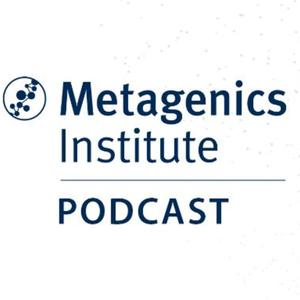
Metagenics Institute Podcast
Metagenics
- 57 minutes 55 secondsExploring the Complex Interplay Between Thyroid, the Immune System and Fat Mass with Rachel Arthur
*The information in this podcast is intended for Healthcare Practitioners.
In this much-anticipated edition, we are joined by the renowned diagnostics educator and experienced naturopath, Rachel Arthur. Together with our host, Nathan Rose, they delve into the fascinating world of the thyroid gland and its interconnectedness with other crucial signalling factors such as leptin, hormones, and fat mass. Prepare to have your understanding of thyroid research reframed as they explore why attributing fat gain solely to the thyroid might not be the full story. Get ready for a captivating discussion on how excessive adipose tissue can lead to disruptions in thyroid function and the influence of macrophage types on endocrine balance. Rachel's remarkable ability to present complex concepts with her insightful analogies promises to make this episode both clinically relevant and entertaining!
Highlights:
15:36 minutes - Why increasing T3 isn’t the holy grail for fat mass.
20:31 minutes - Excess energy intake can be the greatest disruptor of gland architecture.
30:50 minutes - The role of fat mass and macrophages in thyroid function.
36:00 minutes - How inflammation and macrophage type can alter fat gain.*Useful Links: *
https://rachelarthur.com.au/
https://rachelarthur.com.au/mastercourse-ii-thyroid-adrenal-diagnostics/27 July 2023, 1:30 am - 58 minutes 18 secondsHow Immersion Can Improve Your Mood, Energy and Performance with Dr Paul J. Zak
*The information in this podcast is intended for Healthcare Practitioners.
What if you could measure and improve your emotional fitness with an inexpensive wearable device and a free app? In this episode, we talk to Dr Paul Zak, a pioneer in the neuroscience of immersion and happiness, who has developed a groundbreaking technology that can do just that.
In this episode, you will learn:• What is immersion and why is it important for our well-being and performance?
• How does immersion relate to dopamine and oxytocin, two key neurotransmitters that regulate our attention and emotions?
• How can you use Dr Zak’s technology to measure your immersion and psychological safety, and prevent or manage low mood and low energy?
Dr Paul Zak has spent the past two decades searching for signals within the brain to predict what brain’s value and if people will take action. This quest has resulted in discovering neuroscience that uncovered keys to happiness and joy, and more recently, potential clinical benefits in predicting low mood and burnout. In this episode, Paul describes his mapping of what he has dubbed ‘immersion’ – a unique neurological state of engagement that has tremendous predictive power and emerging clinical utility.
Don’t miss this fascinating conversation with Dr Paul Zak, who will share his insights and stories from his decades of research on the brain and happiness. Subscribe to the Metagenics Institute Podcast today and get ready to be immersed in the science of immersion.
Useful links:
• Immersion: The Science of the Extraordinary and the Source of Happiness
• Launch of Tuesday App
20 June 2023, 7:00 pm - 40 minutes 43 secondsHow bone hormones shape our health and longevity with Prof Gerard Karsently
Bone is not just a passive scaffold that supports our body. It is also an active endocrine organ that secretes hormones that regulate various aspects of our physiology, from energy metabolism to brain function. One of these hormones is osteocalcin, which has been extensively studied by Gerard Karsently and his team at Columbia University. In this podcast, we will explore the fascinating discoveries that Karsently and his colleagues have made about osteocalcin and its role in health and disease.
Osteocalcin is a protein that is produced by bone cells called osteoblasts. It is then released into the bloodstream, where it can reach different organs and tissues and exert its effects. Osteocalcin has been shown to enhance insulin secretion by the pancreas, testosterone production by the testes, muscle function during exercise, memory formation and mood regulation by the brain, and even the ability to cope with stress. Osteocalcin also has anti-aging properties, as it can prevent or reverse some of the decline in physiological functions that occurs with age.
The levels of osteocalcin in the blood are not constant. They vary depending on several factors, such as diet, exercise, stress and age. These interactions create a complex network of communication between bone and other organs that helps to maintain homeostasis and adapt to changing conditions.
Karsently's research has opened new avenues for understanding the biology of bone and its impact on whole-body physiology. It has also revealed new potential therapeutic targets or strategies for treating or preventing various metabolic, reproductive, cognitive and emotional disorders. In this podcast, we will dive deeper into the fascinating world of osteocalcin and bone endocrinology with Gerard Karsently himself.
Useful Links:
Berger JM, Karsenty G. Osteocalcin and the physiology of danger. FEBS Lett. 2022;596(5):665-680. doi:10.1002/1873-3468.1425
30 May 2023, 7:00 pm - 51 minutes 56 secondsThe Sunny Side of Health: How Sun Exposure Can Prevent Chronic Diseases with Prof Prue Hart
The information in this podcast is intended for Healthcare Practitioners.
Sun exposure has been valued for its healing properties throughout history and across cultures. But too much of a good thing can be harmful, and in recent decades we have been warned about the risks of sunburn, skin ageing and skin cancer. However, our guest expert today argues that we may have gone too far in avoiding the sun, and that we are missing out on its vital benefits for our health and well-being.
Prof Prue Hart is a photoimmunologist who has been studying the effects of vitamin D and ultraviolet radiation (UVR) on health and disease for over 20 years. She has found evidence that insufficient sun exposure is linked to increased mortality and various chronic conditions, such as some cancers, cardiovascular disease and neurological disorders. Moreover, she has discovered that these benefits are not only due to vitamin D production, but also to other molecules that are activated by UVR, such as nitric oxide and urocanic acid.
In this podcast, Prof Hart will explain how these molecules work in our body, and how they can help us prevent or treat diseases such as COVID-19 and multiple sclerosis. She will also share some practical tips on how to balance sun exposure and protect our skin health. Join us for this enlightening conversation on the sunny side of health.
Links:
Alfredsson L, Armstrong BK, Butterfield DA, et al. Insufficient Sun Exposure Has Become a Real Public Health Problem. Int J Environ Res Public Health. 2020;17(14):5014. Published 2020 Jul 13. doi:10.3390/ijerph17145014
Hart PH, Norval M. The Multiple Roles of Urocanic Acid in Health and Disease. J Invest Dermatol. 2021;141(3):496-502. doi:10.1016/j.jid.2020.07.017
8 May 2023, 7:00 pm - 58 minutes 54 secondsWhat You Need to Know About POTS: A Neurologist’s Perspective – Dr Brent Goodman
The information in this podcast is intended for Healthcare Practitioners.
Do you know what POTS is? It’s a chronic disorder that affects many young women. It causes problems with the autonomic nervous system, which controls the heart rate and other functions. People with POTS experience a rapid increase in heart rate, dizziness, fatigue, nausea and other symptoms when they stand up. POTS is poorly understood and has few effective treatments. However, some dedicated clinicians are working hard to find solutions and help patients. One of them is Dr Brent Goodman, a neurologist and director of the Autonomic Laboratory & Clinic at the Mayo Clinic in Scotsdale, Arizona. He is also on the Medical Advisory Board for Dysautonomia International.
In this episode, you will learn:
· How POTS was discovered and how it affects the body
· What are some of the possible causes of POTS, such as viral infection, physical trauma, autoimmunity and cardiovascular dysfunction
· How POTS is related to other conditions, such as migraine, chronic fatigue, mast cell activation syndrome (MCAS) and hypermobile Ehlers-Danlos syndrome (hEDS)
· What are some of the current treatment options for POTS, especially through diet and lifestyle changes
· What are some of the emerging therapies for POTS and what are the challenges and opportunities for future research
This podcast is essential for anyone who wants to understand POTS and dysautonomia better and help their patients cope with this debilitating disorder.
*Links: *
17 April 2023, 7:00 pm - 48 minutes 15 secondsThriving in menopause: Insights from a leading researcher and advocator Prof Mary Ann Lumsden
*The information in this podcast is intended for Healthcare Practitioners.
Despite women spending more of their lives in a post-menopausal state, there has been limited progress in how society views and supports menopausal women. In this episode, we are joined by Professor Mary Anne Lumsden, a leading researcher and menopause advocate, to examine menopause from all angles. Professor Lumsden explains that with appropriate biopsychosocial support, menopausal women can thrive and be revered.
The conversation begins by exploring the evolutionary theory of the grandma hypothesis, which suggests that menopause is a feature rather than a bug. We delve into the menopausal transition and how symptoms, such as hot flushes, are not solely driven by an absolute estrogen deficiency. In this light, non-hormonal treatments are explored. Additionally, Professor Lumsden outlines the latest updates on the benefits and risks of menopausal hormone replacement therapy, suggesting that the risks may have been overstated in the past.
We then turn to the health challenges that menopausal women often face, such as unwanted weight gain, body composition changes, osteoporosis, and dementia. Professor Lumsden provides insights on evidence-based clinical strategies to support women during this transitional phase of life.
Tune in for a menopausal masterclass that offers an evolutionary, biopsychosocial, and clinical perspective on how menopausal women can thrive.
Mary Ann Lumsden is the CEO of the International Federation of Gynecology and Obstetrics and former Professor of Medical Education & Gynaecology and Head of Reproductive & Maternal Medicine, University of Glasgow. She is Past Senior Vice President for Strategy at the Royal College of Obstetricians and Gynaecologists in London. Mary Ann has considerable experience of developing Guidelines. She was Chair of the Guidelines Development Group for the National Institute of Health and Care Excellence (NICE) Guideline ‘Menopause: Investigation and Management’. Her success in this field was recognised in 2017 when she was awarded an OBE (Officer of the Order of the British Empire) for Services to Women’s Health.
Links
27 March 2023, 7:00 pm - 56 minutes 52 secondsAlzheimer’s Disease: From Despair to Hope with Prof Ralph Martins
*The information in this podcast is intended for Healthcare Practitioners.
Alzheimer’s disease is a devasting illness that robs patients of quality and quantity of life and is the leading cause of death in women. Alzheimer’s is also the most feared condition in middle to older age adults. This may be in part due to fact, to date, there is little to no evidence that pharmaceutical intervention can slow, let alone reverse, the condition once established. Despite the current pessimistic outlook, there is a growing body of evidence that Alzheimer’s can be prevented, slowed, and potentially reversed. Joining the podcast is a juggernaut in Alzheimer’s research, Prof Ralph Martins. For over three decades Prof Martins has explored Alzheimer’s from all angles – and the future looks promising.
In this episode Prof Martins discusses the central role of beta amyloid in Alzheimer’s, whilst touching upon some concerns of its clinical utility. Further, Prof Martins reveals some emerging biomarkers that may be a game changer in the near future. Prof Martin then describes powerful, yet not widely appreciated risk factors, namely hearing loss and poor sleep. The conversation also explores the role of APOE in Alzheimer’s and findings from his research on dietary factors linked to neuroprotection. Despite the size of the problem, the details in the podcast and Prof Martins' energy and passion should leave listeners with confidence positive change is on the horizon.
Professor Ralph Martins is the Foundation Chair in Aging and Alzheimer’s Disease at Edith Cowan University. His collaborative seminal research involved isolating and characterising beta-amyloid and its precursor, the amyloid precursor protein (APP), which are now recognised as central to the pathogenesis of Alzheimer's disease. He was the first to propose and demonstrate that the Alzheimer brain was under oxidative stress, which is now widely recognized by the Alzheimer research community. Ralph's current research interests are focused on understanding the mechanisms and factor(s) leading to the abnormal release and deposition of βA4 in Alzheimer's disease.
Useful Links:
Australian Alzheimer’s research foundation https://alzheimers.com.au/
Lions Alzheimer’s Foundation https://lionsalzheimersfoundation.com.au/\
The Australian Imaging, Biomarker & Lifestyle Flagship Study of Ageing (AIBL) https://aibl.csiro.au/
6 March 2023, 7:00 pm - 50 minutes 22 secondsWhen Brains Dream with Prof Bob Stickgold
*The information in this podcast is intended for Healthcare Practitioners.
Dreams have been a source of fascination across seemingly all cultures over the history of humankind. Likewise, there has been numerous suggestions throughout the ages on the purpose of dreams and the interpretation of dreams. Over the past three decades, sleep and dream researcher Prof Bob Stickgold has developed an ingenious model of the purpose and benefits of dreaming. To understand dreaming, we first need to understand sleep.
In this episode, Prof Stickgold describes how sleep is vital for memory evolution – a process not simply to consolidate information of the past with perfect fidelity, but to help guide us better in the future. From here, we explore how dreaming helps reinforce memory evolution, above and beyond sleeping.
Finally, the conversation explores how disturbed sleep and dreaming plays a role in the persistence of post-traumatic stress disorder (PTSD) and how this may be addressed.
Useful Links:
When Brains Dream: Exploring the Science and Mystery of Sleep13 February 2023, 7:00 pm - 46 minutes 31 secondsCollagen and Nutrition for Skin Health with Dr Tim Crowe
*The information in this podcast is intended for Healthcare Practitioners.
Collagen has rapidly become a popular supplement for skin. But does it promote more youthful skin and if so, how?
Returning to the podcast today is nutrition expert Dr Tim Crowe to explore the research behind collagen and other nutrients for skin health. Tim does a deep dive on the physiology of exogenous collagen supplementation and its effects on reducing the signs of skin ageing, such as wrinkles and reduced elasticity. Learn the type and dose of collagen that has been shown improve skin health.
Additionally, Tim discusses some other evidence-based nutrients for the skin, namely the interesting UV-protective effects of various carotenoids. The conversation finishes with a discussion on the theory that a high glycaemic load diet can cause or exacerbate acne. What does the research say?
Tune in for another episode with straight-talking and fact-based Dr Tim Crowe to help cut through the noise to find the gold in nutrition science.
Links
10 January 2023, 7:00 pm - 44 minutes 24 secondsFemale metabolism, nutrition and exercise with Prof Abbie Smith-Ryan
*The information in this podcast is intended for Healthcare Practitioners.
Nutrition and exercise recommendations are often generic and seldom consider sex differences, let alone the effect of fluctuating sex hormones that occur through ovulatory cycle or reproductive phases. Exercise physiologist and nutrition researcher, Professor Abbie Smith-Ryan, joins the podcast to shed light on the under-recognised effect of sex hormones on women’s metabolism, nutrition and exercise performance.
Listen in as Abbie discusses the influence oestrogen and progesterone have on female physiology, such as impacts mitochondrial function, muscle fibre type, bone structure and body composition. Zooming out, Abbie highlights a holistic view and discusses how perimenopausal women can often experience undesirable changes in body composition and performance which can be both a cause and effect of psychological distress during this life stage.
Abbie also explores the subtle but meaningful impact fluctuating sex hormones have on macronutrient metabolism and exercise performance in the ovulatory and luteal phase in cyclic women – all of which can have real world impact on the food women eat or how they feel and perform at different stages of their cycle.
Finally, in a ‘speed round’, Abbie briefly outlines the lesser-known benefits of several nutrients in the context of women’s health and performance.
Links:
19 December 2022, 7:00 pm - 53 minutes 16 secondsUnderstanding Burnout with Gabriela Tavella
*The information in this podcast is intended for Healthcare Practitioners.
Almost half of working Australians report feeling burnt out. Similarly, many people can experience burnout from non-occupational pressures, such as being a carer. In this episode Nathan speaks to burnout researcher Gabriela Tavella on the science and management of this affliction. Gabriela discusses the psychological factors linked to burnout and the physiological effects of this stress state, how burnout can be confused with depression and chronic fatigue, as well as management strategies her research team have unveiled.
Discover some surprising factors that burnout sufferers have reported to be effective and ineffective in managing their allostatic overload. Additionally, Gabriela offers some simple and accessible tools that can help people experiencing burnout.
Gabriela Tavella is a PhD candidate in the UNSW School of Psychiatry and has a Bachelor of Psychology (Honours) from UNSW. Gabriela currently works alongside burnout pioneering researcher and founder of the Blackdog Institute Prof Gordon Parker AO. Gabriela has published numerous peer-reviewed papers on burnout and recently co-authored the book Burnout: A guide to identifying burnout and pathways to recover.
Links:
Burnout: A Guide to Identifying Burnout and Pathways to Recovery
Bayes A, Tavella G, Parker G. The biology of burnout: Causes and consequences. World J Biol Psychiatry. 2021;22(9):686-698. doi:10.1080/15622975.2021.1907713
Parker G, Tavella G. Distinguishing burnout from clinical depression: A theoretical differentiation template. J Affect Disord. 2021;281:168-173. doi:10.1016/j.jad.2020.12.022
Tavella G, Hadzi-Pavlovic D, Parker G. Burnout: Redefining its key symptoms. Psychiatry Res. 2021;302:114023. doi:10.1016/j.psychres.2021.114023
Parker G, Tavella G. The Diagnosis of Burnout: Some Challenges. J Nerv Ment Dis. 2022;210(7):475-478. doi:10.1097/NMD.0000000000001492
Parker G, Tavella G. Is burnout simply a stress reaction?. Aust N Z J Psychiatry. 2022;56(9):1065-1067. doi:10.1177/00048674211070221
28 November 2022, 7:00 pm - More Episodes? Get the App
Your feedback is valuable to us. Should you encounter any bugs, glitches, lack of functionality or other problems, please email us on [email protected] or join Moon.FM Telegram Group where you can talk directly to the dev team who are happy to answer any queries.
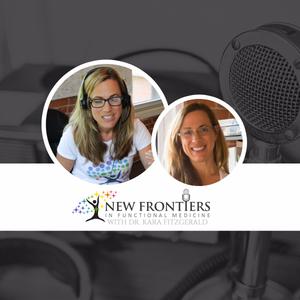 New Frontiers in Functional Medicine
New Frontiers in Functional Medicine
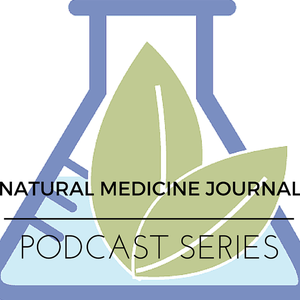 Natural Medicine Journal Podcast
Natural Medicine Journal Podcast
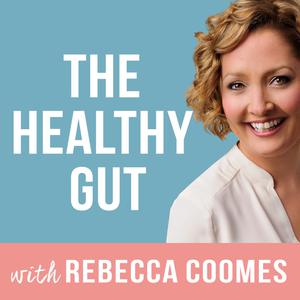 The Healthy Gut
The Healthy Gut
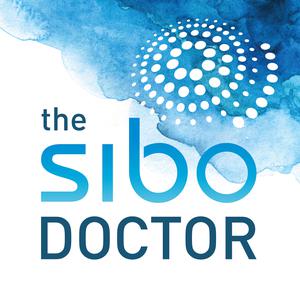 The SIBO Doctor Podcast
The SIBO Doctor Podcast
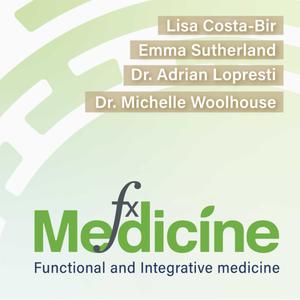 FX Medicine Podcast Central
FX Medicine Podcast Central
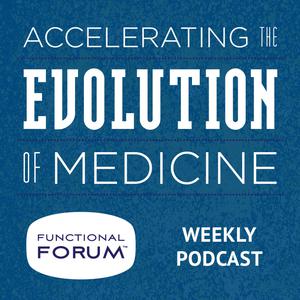 Evolution of Medicine Podcast
Evolution of Medicine Podcast